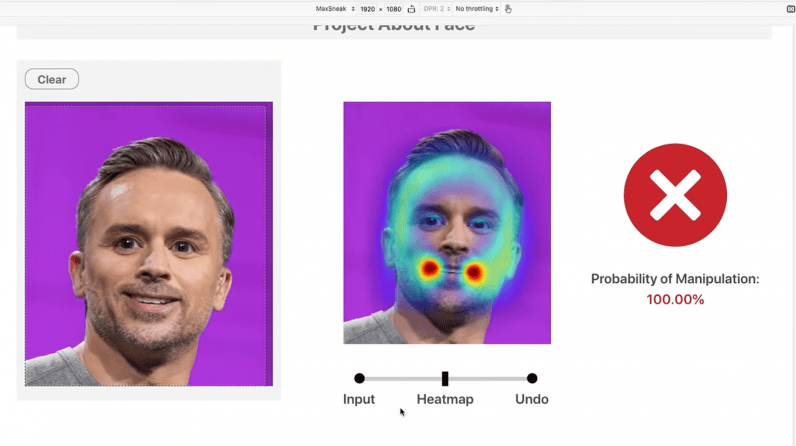
At Adobe’s recent Max conference, the company revealed a project that it’s been working on, called About face. Adobe’s About Face detects when somebody’s face has been altered and manipulated. What’s more, it can even undo the changes made to a photograph. The tool evaluates each individual pixel to detect regions that have been altered.
About Face has probably been designed to identify changes made using Photoshop’s liquify tool. It must be kept in mind that About Face isn’t all about identifying images that have been altered. It can also detect facial features so that you can enhance existing ones or make them more creative. In other words, it acts as a double edged sword.
Here are the specific uses of Adobe’s About Face
- The tool identifies areas that have been stretched and interpolated
- It detects facial features so that they can be enhanced, if that’s the goal anyway
- It can undo changes made to the original photograph
- About Face can weed out fake news and propaganda
- The tool can assist law enforcement agencies to identify those who engage in revenge-related crimes
- It can help sustain a reliable and transparent media
Why image editing has a dark side to it
Editing images is one of the easiest things one can do today, and hardly requires any technical knowledge. A quick glance at the available applications reveals that there are far too many applications that help you alter your photographs in varying degrees. We have already written about Pixlr and iPlates in the past. While some offer filters, others help users with advanced editing features that can change the context of a photograph entirely. In fact, photoshopping images has a darker side to it, with many becoming victims of revenge-motivated photoshopping. There are also instances of altering images for the sake of spreading fake news and propaganda. This is why, Adobe’s announcement of “About Face” is more than just a fun exercise. It has practical implications that will help in law enforcement and in curbing propaganda and fake news.
Battling fake news and unrealistic portrayals of beauty with Adobe’s About face
Countries across the world are battling instances of fake news and viral propaganda. In many cases, photographs have been altered to such an extent that even law enforcement agencies find it difficult to identify what is real and what is not. There have been instances of people harming themselves because of revenge-motivated alterations of photographs.
While photoshopping has been consistently used in the fashion industry, it also has a negative impact on impressionable minds. In several countries across Asia, Africa and Latin America, models’ photographs are air-brushed and their skin colors are lightened, in order to make them appear lighter skinned than they really are. While colorism is at the root of this issue, those who alter the photographs for their own selfish motives reinforce colorist attitudes. Identifying such images and letting impressionable people know that they look good as they are is very important to build healthy self-esteem.
Adobe’s About Face is a step in the right direction in terms of authenticity
If and when Adobe launches About Face, it will do a great service to people affected by fake news, unrealistic portrayals of beauty, colorist and ageist photo alterations, and victims of revenge editing. In a world that is increasingly dominated by social media, ensuring that news is true and real is very difficult. About Face helps identify images that have been altered so those true facts can be presented.
Can you think of any other uses for a tool like About Face? In which other context can it be used other than the situations listed in this article? Do share with us in the comments section below.










